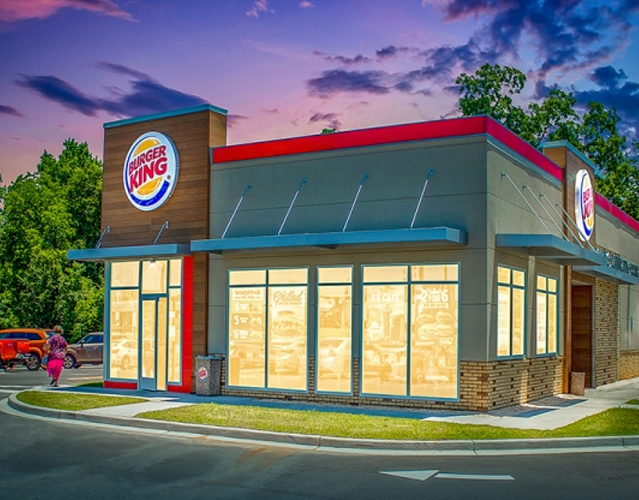Overview of single vs. double vs. triple net leases
Landlords can reduce the risk of commercial leases by utilizing triple net leases (NNN). In a triple net lease, a tenant pays an additional expense or expenses, one of three types of net leases. Commercial real estate often uses net leases to cover property taxes, insurance premiums, and maintenance costs. There are also single net leases and double net leases in addition to triple net leases.
Rent and property taxes are the only fees a tenant must pay under a single net lease. The tenant pays rent, property taxes, and insurance premiums with a double net lease. Rent plus three additional expenses are the tenant’s responsibility under a triple net lease, also known as a net-net-net lease.
Net leases generally charge lower rents than traditional leases since tenants are responsible for more expenses. Due to higher maintenance costs, triple net leases are usually bondable, so tenants cannot back out.
Single Net Leases
The single net lease, also known as the “N” lease, is less common in the rental market. This lease transfers the least risk to the tenant, who pays the property taxes. The landlord is responsible for all other expenses, including insurance, maintenance, repairs, and utilities. During the lease period, the landlord is also responsible for any maintenance and repairs within the property that need to occur.
Single net leases result in tenants paying a slightly lower rent due to the added cost of property taxes. The landlord is still responsible for keeping these expenses current with a higher rental payment.
For instance, the landlord may be liable if a tenant fails to pay the municipality, and additional fees and fines may result. Rent payments usually include property taxes, and they prefer that the price passes through them to ensure proper and timely payment.
Double Net Leases
Commercial real estate is especially prone to double net leases, also known as net-net leases or “NN” leases. This lease requires a tenant to pay rent and property taxes. Because the tenant must bear additional expenses, the base rent – which covers the space itself – is typically lower. Landlords are responsible for all maintenance costs and pay them directly.
It is possible for tenants in significant commercial developments, such as shopping malls or large office complexes, to have different square footage than their neighbors. Renters typically pay taxes and insurance proportionally to landlords based on the size of their leases.
In the same way as the single net lease, landlords should receive additional payments to pay the municipal and insurance companies. While these payments appear in the tenant’s lease, the landlord is ultimately responsible for them due to their name on the tax and insurance bills. Tenants can avoid late or missed payments, which could result in extra fees, by paying these expenses directly to landlords.
Triple Net Leases
It is not riskier for a landlord to have a triple net lease than any other type of net lease. The tenant will be responsible for maintenance, repairs, taxes, and insurance. Due to these additional expenses, the landlord usually charges a lower base rent.
1031 exchanges can delay federal and state taxes on commercial income properties. An investor purchases a similar property within a certain period of time after the sale of a property.
It is essential that the replacement property, also known as like-kind property, costs as much or more as the original property. “Like-kind” properties, regardless of property or grade, must be identical in nature or character. There cannot be a 1031 exchange on investment vehicles such as stocks, bonds, securities, and inventories since an actual property must be involved.
For a NNN 1031 Exchange to be successful, you need to identify a replacement within 45 days of the original property and close the deal within 180 days after you find it. It is also necessary to purchase the replacement property with the proceeds of the sale. In the case of a sale with a purpose other than the original sale, a portion of the sale becomes taxable.
Pros of Triple Net Leases
Triple net leases are arrangements under which a landlord pays property taxes, insurance premiums, maintenance, and repairs on top of the monthly rent.
Long-Term Occupancy
Triple net leases are usually long-term leases (up to 20 years). The landlord benefits from this because vacant properties are no longer a risk or a loss.
Low-Risk Investment
Due to the tenant’s responsibility to pay nearly all property costs, including taxes, insurance, and regular maintenance, triple net leases are low-risk investments for investors.
Consistent Income Stream
Triple net leases provide investors with consistent income, and this type of lease requires consistent rental payments over the long term. Consequently, unforeseen or catastrophic property expenses are the tenant’s responsibility, which helps protect the investment.
Build Equity
Investment portfolios often include triple net lease properties as a conservative, low-risk method of increasing equity. Investing in real estate can also be profitable during overheated markets, population surges, or when investors want to use the equity in their future investments.
Reduced Landlord Duties
Unlike conventional leases, triple net leases carry fewer responsibilities for the landlord. If an investor has more time and money, they may be able to pursue investments with more time and money.
Long-Term Business Footprint
Business tenants benefit from long-term leases by establishing a recognizable and lasting address.
Location
In most cases, triple net lease properties lie near other popular businesses in an accessible location. Using this strategy, a tenant can gain exposure and traffic from nearby businesses.
Tax Benefits
It is possible for triple net lease tenants to deduct property taxes from their business expenses.
Conclusion
Both tenants and landlords can benefit from triple net leases. With a rental space, a tenant can customize the appearance of their area to match their brand without having to purchase it. A lease is typically quite flexible, and tax and insurance increases are typically limited. NNN lease tenants can expect a reliable source of income with low overhead costs. The property is also not actively managed by the landlord.

